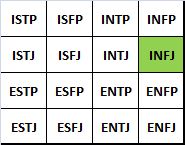 Ignorance means “not knowing” and as the saying goes “Ignorance is bliss” because we do not worry about what we do not know about. Or do we?
Ignorance means “not knowing” and as the saying goes “Ignorance is bliss” because we do not worry about what we do not know about. Or do we?
We are not totally ignorant – because we know that there are “unknowns” that would be of value to us. This knowledge creates an anxiety that we are very good at pushing out of awareness and despite the denial the unconscious feeling remains and it is emotionally corrosive. Repressed anxiety leads to the counter-productive behaviour of self-deception and then to self-justification – both of which are potent impedients to improvement.
We habitually, continuously and unconsciously discount the importance of what we do not know and in so doing we create internal emotional dissonance. Our inner conflict drives external discounting behaviour and the inevitable toxic cultural consequence – Erosion of Trust. Our inner conflict also drives internal discounting behaviour and the inevitable toxic emotional consequence – Erosion of Confidence. This is the toxic emotional waste swamp that we create for ourselves and is the slippery slope that leads down to frustration, depression, cynicism and apathy. Ignorance leads to anxiety and fear – and because we have conditioned ourselves to back away from fear we reflexly back away from ignorance and we end up trading fear for frustration. We do it to ourselves first and then we do it to others.
The antidote is counter-intuitive: it is to actively acknowledge and embrace our ignorance – and to do that we have to deliberately expose our own ignorance because we are very, very good at burying it from conscious view under a mountain of self-deception and self-justification. We need to become Ignorace Miners.
The opposite of ignorance if knowledge and the good news is that we only need to scratch the surface to find knowledge nuggets – not huge ones perhaps – but plentiful. A bag of small knowledge nuggets is as valuable as an ingot of insight!
Knowledge nuggets are durable because they withstand cultural erosion but they can get washed away in the flood of toxic emotional waste and they can get buried under layers of cynical-resentful-arrogant-pessimism (CRAP). These knowledge nuggests need to be re-gathered, re-freshed and re-cycled – and it is an endlessly exciting and energising experience.
So, when we are feeling fustrated, demotivated and depressed we just need to give ourselves a break and indulge in a bit of gentle ignorance mining – and when we do we will start to feel better immediately.

